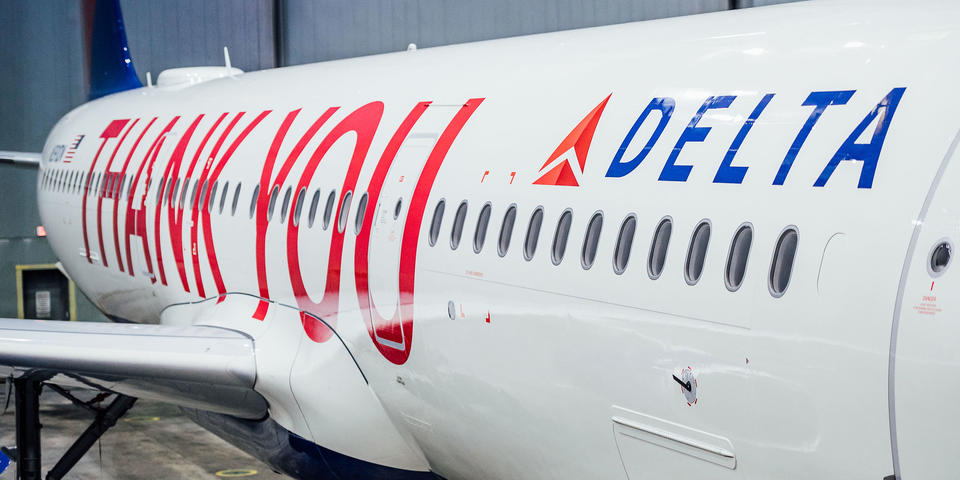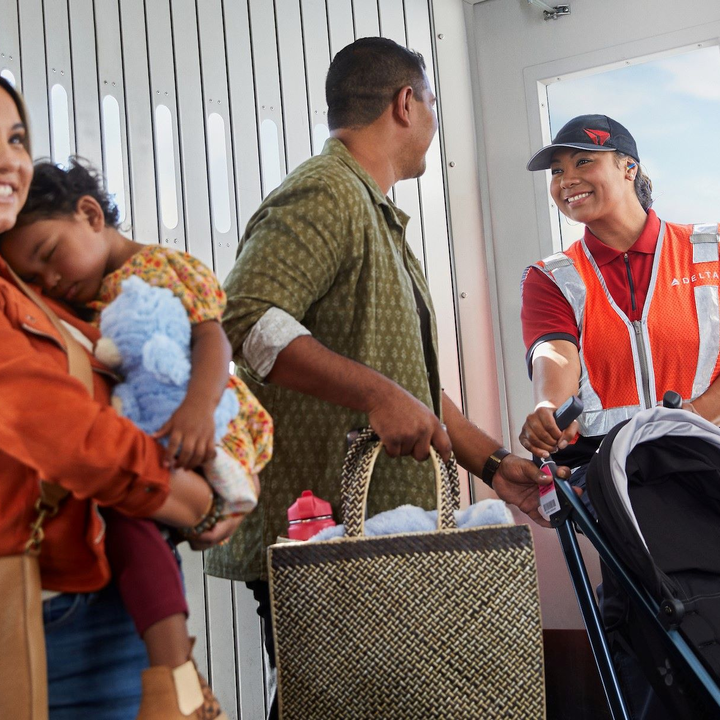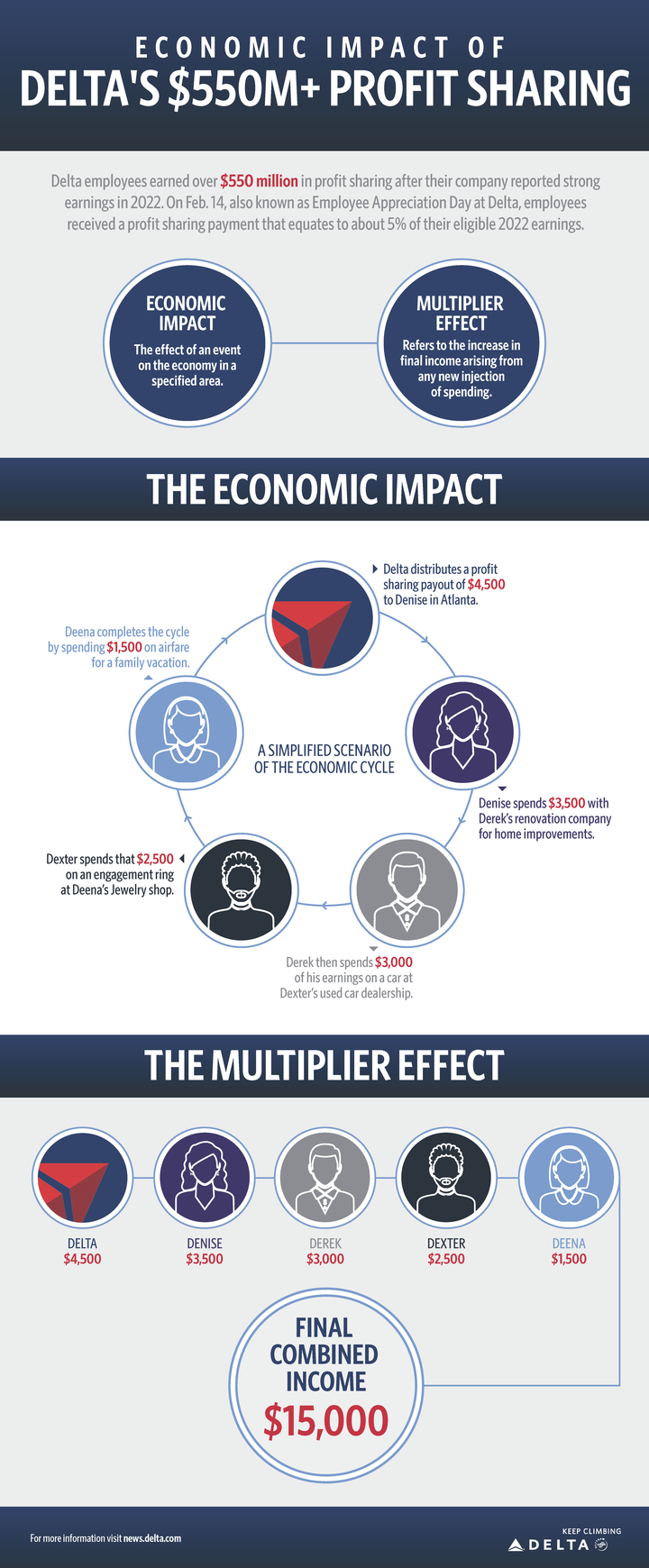Delta’s profit sharing investment in people makes multimillion-dollar impact in communities across US
Delta’s profit-sharing payout represents a significant boost to the purchasing power of its people, giving them the freedom to spend locally and create a “multiplier effect” in their communities.

On Valentine’s Day, Delta shows the love to its employees when the company’s profit-sharing payments hit their bank accounts.
This practice, foundational to the airline since 2007, also has a cascading multiplier effect in the communities where Delta people live, work and serve. This year’s payout totals more than $550 million – about 5.5% of each employee’s 2022 pre-tax earnings – representing one of the most generous profit-sharing programs in the U.S.
The annual payout is part of a substantive one-two punch to boost employees’ purchasing power, coming on the heels of Ed’s announcement regarding a 5% pay increase April 1 for eligible employees.
“When we deliver for our customers, their loyalty drives continued reinvestment in you and our business,” Bastian wrote in a memo to all Delta employees announcing the pay increase. “This virtuous circle is powered by our 90,000 people.”
That investment doesn’t stop with Delta people, however. One-time payments tend to be saved, but annual payments like Delta’s “give employees the confidence to spend, to enhance their lifestyles or to make a special purchase,” said Professor Jeff Rosensweig, Director of Emory University’s Robson Program for Business, Public Policy, and Government.
Some of that money will be spent locally, allowing small businesses to expand; that expansion enables a second round of spending, which then further fuels local business growth that can then boost a third round of spending.
Rosensweig predicted that most people would strike a balance between spending their payout and paying down debt or saving money for a rainy day. (Indeed, Delta people can contribute some or all of their profit-sharing payment to their 401(k) or to an emergency savings fund launched this year, which also allows them to earn up to an additional $1,000 in savings funds from Delta.)
Unsurprisingly, the impact is greatest in Delta’s home state of Georgia, where more than 40,000 employees will receive more than $245 million in profit-sharing payments. However, the investment is substantial in other states as well:
- More than $72 million in New York, home to Delta’s hubs at LaGuardia and JFK airports.
- More than $48 million in Minnesota, home to Delta’s hub in Minneapolis-St. Paul.
- More than $43 million in Michigan, home to Delta’s Detroit hub.
- More than $31 million in California, home to Delta’s hub at LAX.
- More than $30 million in Utah, home to Delta’s Salt Lake City hub.
- More than $29 million in Washington, home to Delta’s Seattle hub.
- Roughly $9 million in Massachusetts, home to Delta’s Boston hub.
These cities represent a diverse cross-section of the U.S., reflected in Delta’s diverse workforce – and that means Delta people’s spending will benefit a diverse array of businesses owned by women and underrepresented ethnic and racial minorities, Rosensweig said.
Half of all Delta employees comprise underrepresented racial and ethnic groups, and 42% of the company’s workforce identifies as women, as of January 2023, the most recent data available. Underrepresented racial and ethnic groups represent over 50% of the workforce in some of the most diverse cities in the U.S., including Atlanta, Los Angeles and New York.
Delta determines its profit-sharing payouts with an equitable and transparent formula: Delta funds the annual profit-sharing pool with 10% of its first $2.5 billion of annual profits and 20% of annual profits in excess of $2.5 billion. The pool amount is then divided by the total earnings of all eligible employees. The result is the percentage of earnings Delta will pay out in profit sharing to each eligible employee.
“Delta’s strategy aligns the interests of its 90,000 people with the interests of the airline and its shareholders,” Rosensweig said. “If Delta people excel, frequent flyers like me will only fly Delta, and Delta will profit. Delta’s people share in this profit – so they have the incentive to make Delta the airline of choice.”



